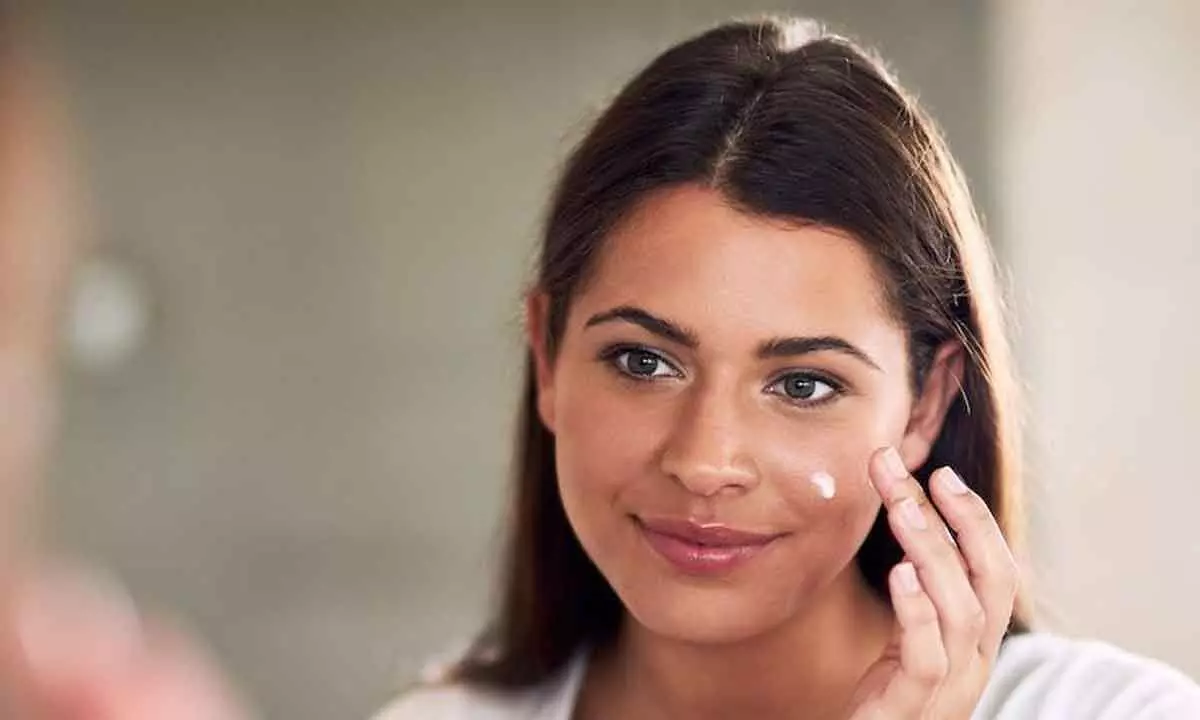Skincare myth busters

The festive season is around the corner and with that, the need to put your best face forward is more important than ever.
The festive season is around the corner and with that, the need to put your best face forward is more important than ever. With the indulgence of heavy makeup and heavier food, which can impact your skin and lead to acne, it becomes critical to take care of your skin and ensure that you have a flawless glow.
Taking care of your skin often means understanding your skin type, and knowing what ingredients to use to keep acne and blemishes at bay. However, with the internet, and with home remedies being passed down generations, there is no shortage of myths and claims that can damage your skin more than they could help. To help bust some of the common skincare myths, here is a rundown of the dos and don'ts to achieve a beautiful festival-worthy glow.
Myth: Kitchen ingredients for acne control
Fact: Kitchen ingredients won't help with acne control
Acne? Go for chickpeas! Blackheads? Try some green tea. Dark Spots? Haldi your way to a beautiful glow! In Indian households, it seems like every single ingredient can be used to tackle certain skincare concerns. Through the years, we have all been told to puree certain fruits and veggies and apply them to our faces, claiming they will act as a magic elixir to clear up our skin and bid our woes farewell. However, the reality of this is far from ideal. While certain ingredients can prove to be beneficial for your skin, the fruits and veggies in your kitchen are likely to have very small quantities of these beneficial ingredients, and not enough to properly take care of your skincare concerns. Moreover, the fruits and vegetables need to be clean and free from any kind of pesticides and additives, which are often hard to remove with regular washing.
Myth: Drinking enough water is enough to hydrate your skin
Fact: Simply drinking water is not enough to keep your skin hydrated
Dry skin is one of the most common skincare concerns, and there is no shortage of remedies that people often claim to work to relieve dry skin. Celebrities and makeup influencers often publicize that drinking enough water can help clear up the skin, but the reality is not as simple. Dryness is often caused by the skin's inability to retain water, mainly due to a weakened skin barrier. However, drinking copious amounts of water won't help the skin retain the water better. The hydration element needs to come in from a topical application, most easily achieved through the use of moisturizers.
Myth: Natural products without chemicals are good for your skin
Fact: Chemicals can help tackle skincare concerns better than natural ingredients
One of the biggest myths prevalent in the skincare and beauty industry is that chemicals are innately bad for your skin, and the only approach for clear skin is to use natural ingredients. Chemicals used in skin care products are specifically designed to penetrate the skin layer and can help tackle some of the skincare issues from the root. In most instances, science-based skincare can help you achieve faster results as compared to any other form of remedy.
When using chemical-based skincare products, the most important step is to research the ingredients being used to properly understand them and know what you should be using for your skin. Brands that offer science-based skincare encourage their customers to read through the different activities being used so that they can choose the product that perfectly fits their concerns.
Myth: Anti-aging products are only for those over the age of 50
Fact: You should start using anti-aging products in your 20s
We all want to retain our youthful glow through the course of our lives, and always have moments where we look back at our younger selves and reminisce about the clear and wrinkle-free skin that we once had. While this notion often leads to people using a host of anti-aging products, a common myth is that one should start using these products only once they start noticing the appearance of fine lines or wrinkles, or only past the age of 50.
The best time to start using anti-aging products is during one's late 20s. Using products like Retinol & Peptide Serum which includes ingredients like 0.2% Retinol + 1% Peptide can work effectively to minimize the visibility of fine lines and wrinkles and works to give your skin the moisture and nourishment that it needs.
Myth: If it burns, it is working better
Fact: Skincare products are not supposed to burn your skin
Many people are of the assumption that skincare products that burn the skin are actually 'working' and are likely to give you more results. Burning is usually caused when the ingredients within specific products are too harsh for your skin, or if you are allergic to certain ingredients. No matter what the cause, burning on your skin is never a good sign, and is something that you should be incredibly wary of considering the permanent damage that it can cause. If you do experience burning on your skin, immediately wash off the product and make sure there are no traces of it left behind on your skin. If the burning was prolonged and won't subside, the best approach is to see your dermatologist, who can provide you with topical ointments that take care of the affected areas.
While skincare myths are abundant, it is important to properly research the tips and remedies that have proven scientific backings and that showcase clinically proven results. By adopting this approach, you can utilize skincare products and routines that work well on your skin, and avoid the ones that are ineffective, or even harmful to your skin.








